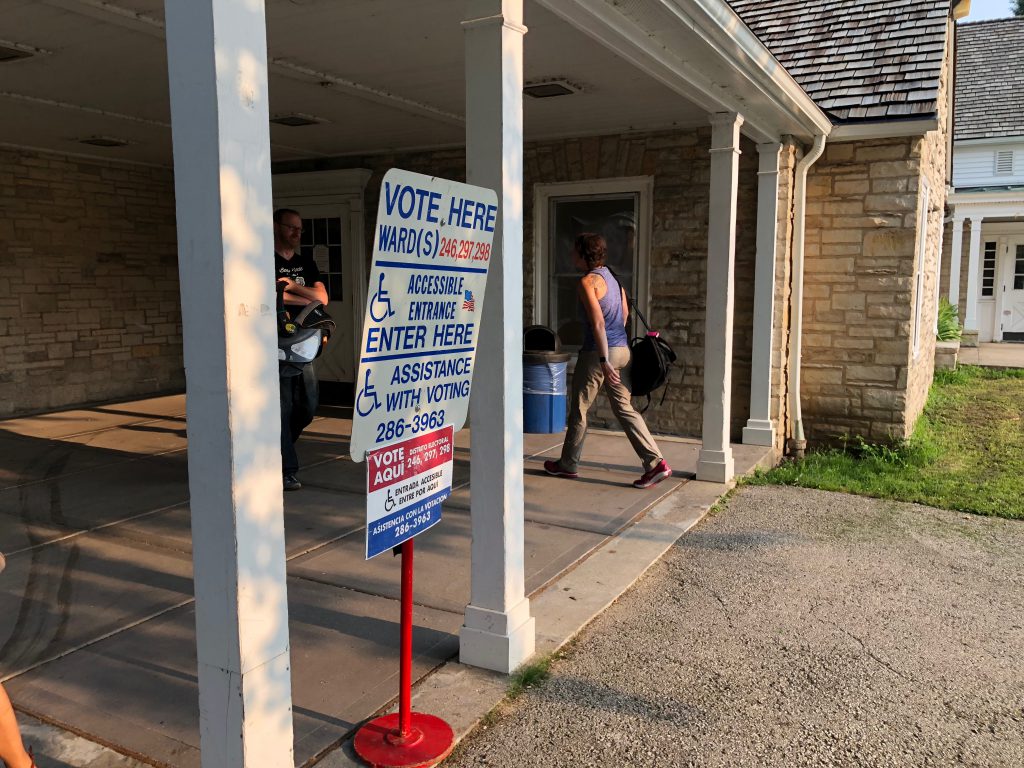13 Questions For The Candidates
The August 9 primary is four weeks away. What are the issues facing the candidates?
Candidates for federal and state office want your votes in Aug. 9 primary election, which is only four weeks away.
Important primaries will be held for the U.S. Senate, governor and — because so many state legislators are retiring — for the state Senate and Assembly. Winners of those primaries will be on the ballot in the Nov. 8 general election.
For candidates for the U.S. Senate and U.S. House:
-National debt rose by 35% (from $20 trillion to $27 trillion) between 2017 and 2020, and increased to $30 trillion by January of this year. Is controlling that debt, or even lowering it, a priority for you? If so, how would you control or lower national debt?
-The Kaiser Family Foundation estimates that 14.5 million Americans get healthcare through the Affordable Care Act (“Obamacare”), including 212,200 residents of Wisconsin. With the Medicare trust fund scheduled to be unable to pay for in-hospital patient care by 2028, how can we pay for health care in the future? Do we need a national health care system like Medicare For All?
-In June, the annual Social Security fiscal report estimated that the Social Security Trust Fund will be unable to pay full benefits beginning in 2035. What changes are needed to extend that insolvency date?
-In the wake of the Supreme Court’s Roe v. Wade decision that left regulation of abortion up to individual states, does the nation need a national standard on abortion? If so, what should that standard be?
For Republicans running for the U.S. House:
-If your party takes control of the House, should it launch an investigation into the Democrat-led Select Committee to Investigate the Jan. 6 Attack on the Capitol? If so, what should be the goals of any Republican-led investigation of the Jan. 6 committee?
For candidates for attorney general:
-If the 1849 state law prohibiting abortions, except to save the mother’s life, remains in effect, would the state Justice Department you run file criminal charges under this statute or allow agency resources to be used to investigate potential violations of this law? Why or why not?
For candidates for governor and the Legislature:
-Should the 1849 Wisconsin law prohibiting abortions, except when necessary to save the woman’s life, be repealed or remain? If it remains state law, should be it amended to allow abortions if the pregnancy resulted from rape or incest?
-Should the six-member Wisconsin Elections Commission, made up of three Republican and three Democratic appointees, be abolished? Why or why not? If it is abolished, which official or what new panel should be created to oversee the 2024 elections for President, U.S. Senate, Congress and the Legislature?
-Some states and cities nationally have changed election laws so that the names of candidates who get the most votes in primaries — without regard to what party they belong to or their independent status — are on the November general election ballot. Should this be tried in Wisconsin?
-How should state government’s record surplus — estimated to be $3.8 billion by mid-2023 — be spent? Should part of it be returned to taxpayers, or spent on the state’s most important and most expensive programs: health care, K-12 schools, the UW System, prisons, aid to local governments to control property taxes, and highways? Or should much of it be kept in a “rainy day” fund?
-Should state government accept new federal aid just approved as an incentive to enact “red flag” laws that allow judges to order that someone who is found to be a threat to themselves or others must temporarily surrender their guns? Should state government respond to mass shootings and, if so, in what way?
-Wisconsin’s neighboring states have legalized both medical and recreational marijuana use. Should either of those be legalized in Wisconsin? If recreational marijuana is legalized, how should taxes on its use be spent?
-If Wisconsin legalized recreational marijuana, should those in prison or in jail for non-violent drug crimes be eligible for release?
Now you have a primer on some basic issues and can ask questions candidates who want your vote should be able to answer. Make them earn your vote.
Steven Walters started covering state government in 1988. Contact him at stevenscotwalters@gmail.com
If you think stories like this are important, become a member of Urban Milwaukee and help support real, independent journalism. Plus you get some cool added benefits.
The State of Politics
-
A Wisconsin Political Trivia Quiz
 Dec 15th, 2025 by Steven Walters
Dec 15th, 2025 by Steven Walters
-
The Fight Over Wisconsin’s House Districts
 Dec 8th, 2025 by Steven Walters
Dec 8th, 2025 by Steven Walters
-
The Battle Over On-Line Betting
 Nov 24th, 2025 by Steven Walters
Nov 24th, 2025 by Steven Walters






















